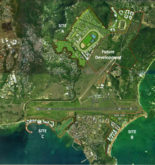With the news of the landslide 2021 SLP election victory of 13 to 4 (or 15 to 2 if the independent victors throw their lot with Labour), I was relieved. Partly because I was afraid that if SLP were to lose the elections, unrest would ensue. But despite my relief, unlike the ruckus victory celebrations all around me, I was in no mood to rejoice, for it occurred to me this wasn’t a moment of celebration. This was a moment of reflection, a moment of introspection.
My apprehension or brooding started the night of the elections when I stumbled upon DBS television with commentators Rick Wayne, Timothy Poleon, Peter Wickham (pollster), Earl Bousquet, Dr. Thomas Samuel (economist), and Lissa Joseph. I was disconcerted when Peter Wickham attributed the UWP defeat to COVID-19 fallout, delayed calling of the elections, and inadequate UWP response to SLP’s “unsubstantiated” corruption allegations. I was even more disturbed by Rick Wayne’s analysis that Chastanet was punished because he dared to embark on a development path different from what came before, and because of such “silliness” as his skin color and voters’ “laughable” notions that he was taking their land and St. Lucian-ness away from them. It seemed Rick Wayne and Peter Wickham were living in a world different from my own.
I was alarmed. Election defeats signal voter’s dissatisfaction with the direction the country was going and serves as an indication of voters’ preferred way forward. Hence it is important to conduct post-election analysis, reflection, soul-searching, to ascertain where the government went wrong, and the message/warning contained in the voting results.
Therefore, we will be doing the country plenty of harm, and would be doing Chastanet, UWP, and the electorate a big disfavor, if we were to conclude that the UWP lost the elections because of failure to adequately respond to “baseless” corruption allegations, misunderstanding or misinterpretation of the direction Chastanet had wished to take the country, faulting Chastanet for his skin tone, and the “nonsensical” notion that he was taking our land and St. Lucian-ness away from us.
Why UWP Lost the Elections

The Corruption Factor According to Pollster Peter Wickham. So clearly, it is important that we disabuse Rick Wayne and other Chastanet and UWP sympathizers of these notions. First, the corruption charges. I can’t fathom why anyone paying attention to St. Lucian news, particularly those tuning in to Richard Frederick’s program, Can I Help You, could conclude that the accusations were baseless, when just about every single allegation, including the PAJOAH Letter, the Anse Jambette Land Acquisition Deal, Fresh Start, and the Hewanorra Airport Redevelopment Project, were accompanied by leaked documents (not meant for public consumption), and/or personal testimonies by those in the know. The UWP administration couldn’t respond adequately because the accusations were substantiated with leaked documents.
Take the PAJOAH Letter, for example. Could Guy Joseph deny writing the letter? Well, his signature was affixed to it. Could he deny this wasn’t his signature? In those circumstances, the best Guy Joseph could muster was to make light of the accusation by ridiculing the notion that the letter was a breach of ministerial code, and that it warranted his resignation and that SLP governments had been guilty of much more serious breaches, yet no one was ever disciplined or discharged from office. His reaction an inadvertent admission of guilt. The other factor that made it more difficult for the UWP to defend the corruption accusations was the reality of social media, which made possible the instant, ubiquitous and unfiltered dissemination of such news.
Now, one of the haunting features of Chastanet’s UWP administration was Guy Joseph publicly beating his chest, boasting that he was untouchable; and to prove it inviting the opposition to prosecute him, knowing full well that either the evidence was insufficient to stand in the court of law and/or the opposition politicians would never take the matter to court because they too were guilty of similar or other acts of wrongdoing. But the minister forgot one thing: the court of public opinion, where, as the 2021 elections showed, the burden of proof isn’t as voracious as that of the court of law.
The Misunderstood Hero Factor According to Rick Wayne. Second, the notion that Chastanet was a misconstrued hero trying to pull St. Lucia out of poverty. Now, there is no reason to doubt Chastanet’s desire to put St. Lucia on the path of economic progress, but St. Lucians didn’t misunderstand or misinterpret his take on development. On the contrary, St. Lucians understood Chastanet loud and clear. They simply rejected in no uncertain terms his development strategy of handing over to foreigners and other adventurers key St. Lucian assets to exploit without concern for environmental degradation, social dislocation, and economic disenfranchisement and, apart from some employment, without a clear sense of what is in it for the people. St. Lucians rejected the notion of jobs and development at any cost.
There is something strange about St. Lucian politicians. They scream and claw to get in power, making people believe that they have the elixir for social and economic progress, only to get in power and instead of engaging in the critical thinking and hard work required to develop the country, they simply hand over the country to foreign adventurers and speculators as a development strategy. In this elections, St. Lucians said yes, we want jobs; yes, we want good roads and housing; yes, we want good healthcare and education; but not at the cost of nullifying our sovereignty and our cultural and natural patrimony. And what is worse is that despite Chastanet’s willingness to sacrifice the country and its people on the altar of development, there was little in terms of economic progress to show for it. I suspect that, long term, what is bad for our sovereignty and patrimony is bad for our economic development.
The Coloration Factor According to Rick Wayne. Third, faulting Chastanet for his skin tone. With this apology for Chastanet’s defeat, Rick Wayne struck the lowest and most misleading blow. If we look at history, we may conclude that Chastanet’s skin tone helped him win rather than lose elections. Consider, for example, that since Sir George F.L. Charles served as chief minister (1960-1964) of St. Lucia, the only persons who have contested an election as leader of his party and in the process headed the government for a full term were those regarded as either fair-skin or half-white or almost white. It is a shortlist. Sir John Compton, Dr. Kenny Anthony, and Allen Chastanet. It would appear that being light on melanin is a good start to becoming the prime minister of St. Lucia.
Based on this bit of history, elsewhere I said that the Labour Party might be on the right track in grooming Dr. Ernest Hilaire for the party leadership and hence the prime ministership and that Philip J. Pierre as a candidate for prime minister may be a nonstarter. Of course, with his SLP landslide 2021 victory, Philip J Pierre has emphatically proven me wrong and in so doing has made history. In his prime minister swearing-in speech, he said that he was “always underestimated and sometimes ridiculed as a stutterer.” I guess I can be counted among those who underestimated his fortitude.
To attribute Chastanet’s UWP defeat to skin tone and hence racial discrimination would give a visitor to the island a misleading impression of the racial situation in St. Lucia, when the fact that St. Lucia, a country which is over 85 percent black and under 1 percent white, can elect a white prime minister, particularly one with no outstanding qualities, suggests a high degree of racial acceptance and harmony. If I am wrong, and Chastanet’s race was a significant factor in UWP’s defeat, then the problem didn’t begin with his race, it began with culture.
Culturally, the former prime minister is barely a St. Lucian. Meaning he is not steeped in, or he is not okouwan with St. Lucian culture. Worse, his sentiments are more in line with that of a North American than that of a St. Lucian or a West Indian. Chastanet’s out-of-step-ness with St. Lucian culture along with his under-appreciation of the island’s history of slavery, was probably responsible for him making such insensitive statements as “I am a product of Canada”, “colonialism had a conscience”, and him offering St. Lucia as a COVID-19 vaccine guinea pig, all of which St. Lucians found galling and which drew attention to his whiteness and foreignness. Another issue that has forced St. Lucians to focus on Chastanet’s foreignness and skin tone is the perception that while he seems hell-bent on facilitating rich, foreign entities, he appears to go out of his way to dismantle programs geared toward helping the most disadvantaged of St. Lucians and programs that speak to nation-building, sovereignty, and patrimony. For a fuller treatment of Chastanet and race and culture, please visit No Man’s Land: A Political Introspection of St. Lucia.
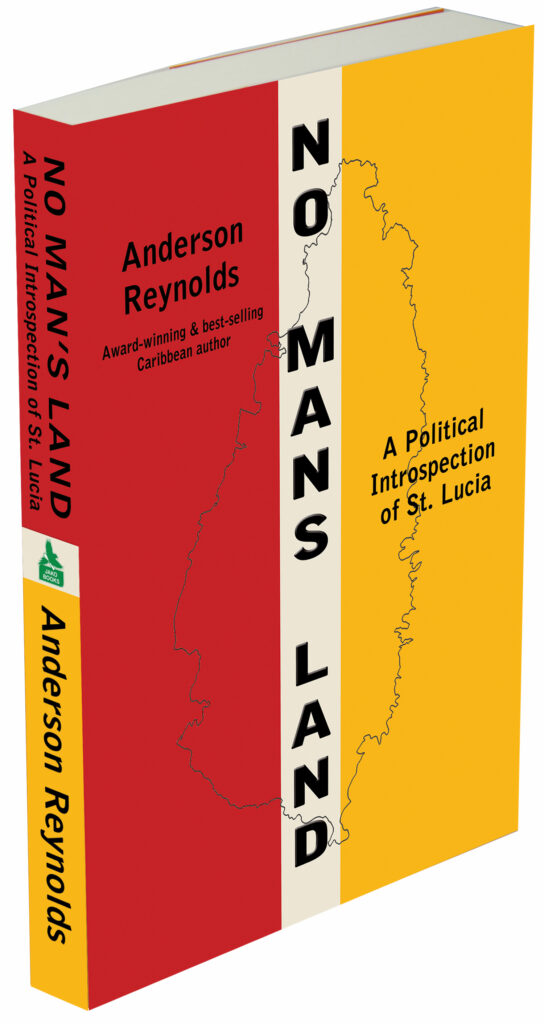
The St. Lucian-ness Factor According to Rick Wayne. The final reason Rick Wayne gave for UWP’s rejection at the polls was voters’ “misguided” notion that Chastanet was taking their land and St. Lucian-ness away from them. I found this apology for Chastanet’s defeat the most amusing. Amusing because I couldn’t understand why one would think that this was an inconsequential issue, unworthy of a general election. Isn’t owning a piece of a country and the feeling of belonging, the feeling of home, an essential and crucial part of citizenship? How could St. Lucians feel the country belongs to them and is there to serve them when hundreds of acres of prime land are being given away to rich foreigners for next to nothing, which they quickly turn into speculative schemes, while the acquisition of land to build homes is beyond the reach of many hard-working citizens? How could St. Lucians not feel that their St. Lucian-ness is being stripped away when their government seemed intent on eliminating the programs and undermining the institutions designed to preserve and celebrate their country’s uniqueness?
The King Factor According to the Voters. I was surprised that the commentators didn’t give much weight to Stephenson King’s defection as a factor in UWP’s defeat. King brought a semblance of calm, normalcy, statesmanship, and magnanimity to the UWP government. He was the last remaining link to the glory days of UWP. He was the UWP. In 2016, right up to when Dr. Kenny Anthony called general elections, the UWP was in shambles and in a state of disintegration. At loggerheads with Chastanet, King and Montoute had pulled away. Then, it was unclear that UWP could put up a complete slate of candidates. However, no sooner had Dr. Anthony called elections, King and Montoute returned to the UWP fold, and suddenly the elections took a different complexion. Suddenly Yo Pè (they afraid) was ringing across the country. In 2016, King’s return to the fold was instrumental in UWP turning the corner, and in 2021 King’s defection tipped the scale in favor of SLP.
However, King’s defection did more than just tip the electoral scale. With Richard Frederick’s weekly revelations, we already knew about Guy Joseph’s and UWP’s corruption and wastefulness, we knew about Chastanet’s disregard for the laws of the land, we were appalled by his seemingly putting foreigners first and St. Lucian’s last, and we were dismayed by his willingness to denigrate some of the statutory institutions of the country. However, King’s disclosures didn’t only confirm and validate the accusations and suspicions but made us realize that the state of UWP governance was worse than we imagined. We were shocked at his disrespect and humiliating treatment of Stephenson king, a former prime minister, and the very foundation of the party. It made us realize Chastanet’s disrespect and disregard for our laws and institutions was his modus operandi, for, apparently, he treated other members of his cabinet, King, for example, the same way, which again draws attention to his skin tone and foreignness, and justifying St. Lucians attributing to him a Massa mentality.
Yet for me, the most damning of King’s revelations was that Allen Chastanet had literally paid UWP delegates to vote for him for the party leadership in opposition to King and that the Chastanet team went as far as replacing delegates loyal to King with those willing to vote for Chastanet. This meant that all along Chastanet was an illegitimate party leader and, therefore, an illegitimate prime minister. So, for five years we had an imposter, a fake prime minister, running the country. Is it any wonder that in the 2021 general elections Chastanet employed campaign tactics that came close to buying the elections, and if not for King’s well-timed defection and Christopher Hunte’s and later Richard Frederick’s weekly bomb drops, he would likely have succeeded?
The Chastanets’ denying Stephenson King the party leadership by literally buying it from under him, gives credence to the suspected ruthlessness of Michael Chastanet in his business dealings, which he apparently prettied up in his memoir, Room At The Top.
Like the 1979 Odlum-Josie-Louisy SLP government, Stephenson King’s 2006 UWP administration was a dysfunctional government that set the country back 10 to 15 years. So much so that Dr. Kenny Anthony’s 2011 government had to spend most of its term in office correcting the blunders of King’s UWP. However, Stephenson King’s disclosures along with that of other UWP stalwarts who followed (including lady Compton and Dr. Claudius Preville) suggest that Chastanet’s UWP government was even more dysfunctional than that of King’s, and may have set the country back maybe even more than 15 years. So, with its electoral victory in hand, SLP is once again burdened with the unenviable task of undoing the misadventures of a UWP government.
In an article published in Caribbean News Global, Victor Poyotte, bringing his 40 years of public administration expertise to bear, uses management theory to explain that Michael Chastanet and Guy Joseph were the de facto leaders running the country and hence the real prime ministers of St. Lucia. So much so that Allen was a victim caught between a rock and a hard place, and was in effect being held hostage by the two behind the scene operators. According to Poyotte, while Michael was using his position to advance and expand his commercial enterprise, Guy was using his to amass wealth. If Victor Poyotte is correct in his assessment, then his exposition constitutes further evidence of the dysfunctionality of the Chastanet government and the illegitimacy of his prime ministership.
A Squandered Opportunity
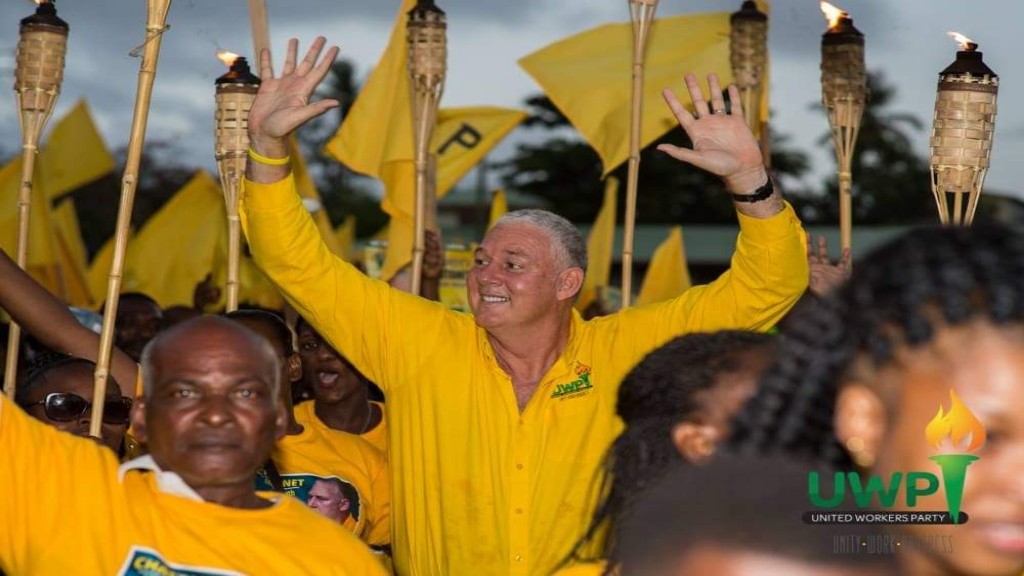
In 2016, I was very disappointed when SLP lost the elections even though I was forewarned three nights before by a dream that I had interpreted as something or someone would give me a big disappointment. I was disappointed because I knew that Chastanet would stop several of the projects Kenny Anthony had earmarked for Vieux Fort, chief among them the Administrative Complex. I knew he would stop this project because if I were in his shoes, I probably would have done the same because if I had $60 million to spend in Vieux Fort, I would have spent it instead on a job generating enterprise. But since I can’t tell government what to do with taxpayers’ money, and I reckoned that if the $60 million wasn’t spent in Vieux Fort, it would be spent elsewhere, as a Vieux Fortian I had little choice but to be in favor of the initiative.
The other overwhelming feeling I had was a deep, wrenching shame. It was a shame that my country, which was over 85 percent black, had elected a white prime minister. St. Lucia’s racial situation is so mild and so almost invisible, that I suspect it is only St. Lucians who have lived in Europe and North America for any length of time and got exposed to the racism and second-class citizenry of these countries could share and understand my shame. So great was my shame, that for weeks I couldn’t hold my head high. When I met non-St. Lucians, at home and abroad, I had the feeling they were looking down on me with disgust. The only other time I felt such shame was back in 1970 at 11, in Form One in Teacher Ryan’s Social Studies class, when I was told for the first time that I was a descendant of slaves.
However, after I got over my shame and initial disappointment, being pro-government and always willing to give the government (whatever the administration) the benefit of the doubt, I consoled myself with: it’s not like I am so enamored with Kenny Anthony, after all, no one has accused him of setting Vieux Fort’s development on fire. Won’t it be great for Chastanet to put Kenny Anthony to shame, and set off a frenzy of economic development in Vieux Fort? And I thought Chastanet was on to a good start that heralded such intentions when he held his administration’s inaugural ceremony in Vieux Fort, in the heart of Labour country, rubbing salt into Kenny’s wounds. I got even more excited when, at the inaugural ceremony, Chastanet talked about a cruise ship pier for Vieux Fort among other development initiatives. I thought that operating from Desruisseaux, Chastanet could capture the South and establish a political dynasty to rival or surpass that of Sir John. It was a golden opportunity for Chastanet and the UWP, for the country was tired of Kenny Anthony; after all, the 2016 elections was essentially a vote against Kenny Anthony.
But to my great dismay, Chastanet’s first act in Vieux Fort was to hand over the best of the district to a foreign entity with no consultation with Vieux Fortians and with no clear sense of what is in it for Vieux Fort and St. Lucia. From then on it was downhill as far as I was concerned for Chastanet’s administration. And today, after witnessing five years of Chastanet’s rule, after the weekly revelations of Richard Fredrick and Christopher Hunte, and after the disclosures of Stephenson King and that of other UWP stalwarts who followed on his heels, it appears all of our shame and disappointments and our suspicions of Chastanet’s unfitness for the job were justified, and that it is hard to imagine that any self-respecting St. Lucian who isn’t a direct beneficiary of his administration can support him. And that is why I can’t understand why Rick Wayne continues making apologies for him. No one should feel sorry for Allen Chastanet. He squandered his opportunities. If Chastanet had done the right thing, especially when it came to Vieux Fort, regardless of his skin tone or his non-St. Lucian-ness, and regardless of my initial shame and disappointment, I may have been his biggest fan.
My initial reaction to Chastanet wasn’t unlike when I returned to St. Lucia from the US and in search of the best recording studio to produce an album for Sylvester “Itoobaa” Peter, who rivals Meshach Nestor as the greatest reggae artist to come out of St. Lucia, I was referred to Adam Gillmor, only to arrive at his studio and realize he was white. I said to myself, you mean to tell me I leave the US with all its racism and discrimination only to come home to produce reggae (a genre that epitomizes blackness, black defiance) with a white man? But I quickly admonished myself, with: what nonsense you talking about, you want the best so you go to the best regardless of his color or any other aspect of his physique. And so I signed a ten-track album contract with Adam Gillmor, at the time the best song engineer on the island, and Freedom, the album of this union, is arguably the greatest reggae album St. Lucia has produced. And up till today, while many musicians have issues with Adam Gillmor, we have remained working friends. I have related this story to say that despite my initial misgivings of Chastanet, given my tendency to opt for the best outcome and to be pro government, I was prepared to give Chastanet the benefit of the doubt. And the fact that he and his party were the victors in 2016, suggests that the majority of St. Lucians also gave him the benefit of the doubt. So I doubt very much that his skin tone had much to do with his party’s 2021 defeat.
Cause for Concern
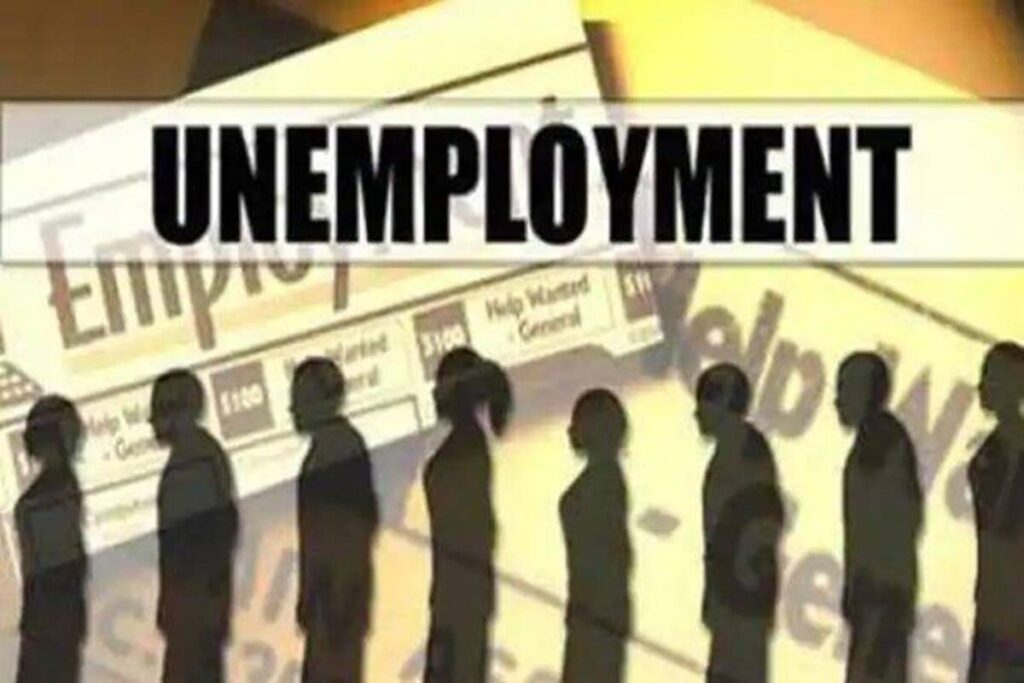
Another reason that, despite my relief at the Labour victory, I couldn’t celebrate was my concern about the compromises SLP may have made to accommodate Stephenson King and Richard Frederick. In 1979, in order to win the elections, SLP had made an accommodation with Allan Louisy, whereby during the campaign he would front as party leader to ease voters’ fears of the radicalism of George Odlum, the bonafide party leader, and, with a Labour victory, a few months after forming the government, Louisy would step down as prime minister for Odlum to take his rightful place at the head. Louisy fell back on his promise and refused to step down, setting in motion the events that culminated in the worst political debacle in St. Lucia’s history, which set the country back several years.
As in 1979, has SLP given up too much, paid too high a price, to win the elections? Of course, with an electoral victory of 13 to 4, my concerns have been eased somewhat because SLP can comfortably form the government without the support of King and Frederick. Meaning their bargaining power is such that they are not in a position to hold the new prime minister, Philip J. Pierre, hostage. Yet, I suspect with regards to Richard Frederick it is going to be an uneasy alliance. For example, have the issues that caused the US to revoke Richard Frederick’s diplomatic visa disappeared? Has Kenny Anthony, who once characterized Richard Frederick as “the most frightening prospect” of St. Lucian politics, had a change of heart? A few days before the elections, a video clip was circulated with very damning allegations against Richard Frederick. Hopefully, the video was fake news propagated by UWP sympathizers. However, if the allegations are factual, with Frederick as a prominent government official, what kind of signal are we sending to our children? What does that say about the integrity of the Labour Party, the self-professed party of the maléwé, a party that holds itself to very high ideals? Again, did St. Lucia and the SLP pay too high a price for getting rid of Allen Chastanet?
I cannot recall a time in St. Lucia’s history when the public was as taken up with corruption as by Chastanet’s UWP government and the 2021 general elections. The excesses of Guy Joseph and the UWP administration gave voters an inkling of the extent to which politicians have been taking them to the cleaners. Voters have wised up. With the 2021 elections, they made it clear that they will no longer tolerate such blatant economic extraction. Imagine that: if not for Richard Frederick and his uncanny ability to acquire confidential government (leaked) documents, we would have remained largely in the dark about Guy Joseph’s and the Chastanet Administration’s machinations.
As we welcome a new government, it is important for us to remember that corruption wasn’t and isn’t unique to the Chastanet government. Indeed, by imbuing cabinet and the prime minister with unfettered powers, our constitution facilitates or lends itself to corruption. In that regard, we have one thing for which to thank the Chastanet administration: its gluttony drew our attention to some of the flaws in our constitution and structure of governance. Constitutional reform to restrain or place more checks and balances on the powers of cabinet and the prime minister is one sure way of reducing government corruption and such gluttony. And in that regard, St. Lucia is in luck because the report of the Constitutional Reform Commission (2011), along with Dr. Stephen King’s article, Enough is Enough, and Dr. Reynolds’ recent book, No Man’s Land: A Political Introspection of St. Lucia (2021), elucidate how the constitution can be amended to realize a more accountable or answerable government less prone to corruption and misadventures.
The enactment of the envisioned constitutional reforms would require the votes of at least three-quarters of members of the House. Therefore, with a 13 to 4 (or 76.47 percent) majority House of Assembly, Philip J. Pierre can set himself apart from all politicians who came before him, and have history record him as the hero who captured and brought home the elixir that set the country on a fresh path of unprecedented holistic development. A feat not even John Compton, the Father of the Nation; George Odlum, the great enlightener; Dr. Kenny D. Anthony, the shepherd who steered the nation into the 21st century, could lay claim to.
However, my fear is that despite Dr. King’s and many others’ passionate plea for constitutional reform, the elucidations of No Man’s Land and the St. Lucia Constitutional Reform Commission, and the public’s outcry against corruption, like Dr. Kenny Anthony in his first two terms as prime minister, Philip J. Pierre may let this rare and golden opportunity go to waste, because in the 2021 elections neither UWP nor SLP embraced constitutional reform as part of their vision for the country or as part of their campaign platform.
Yet another concern I have is that the politicians still haven’t gotten it that with a perennial unemployment rate hovering above 20 percent and a youth unemployment rate of over 30 percent, St. Lucia is in a permanent state of a great depression; that such persistently high unemployment is reflective of structural economic problems and as such cannot be fixed with whimsical, ad hoc, short-lived job programs. The politicians behave as if the country’s unemployment problem is just a campaign issue, a fleeting phenomenon, one that only needs addressing at the time of elections.
The 2021 manifestos of the two main political parties didn’t include any definite strategy to reduce the country’s unemployment below a target rate by a certain time period. Dr. Kenny Anthony’s 5-point campaign platform mentioned housing, road rehabilitation, completing St. Jude’s Hospital, a boardwalk along Vieux Fort’s waterfront, and the administrative complex, all worthy initiatives, but the absence of job creation and economic expansion activities was a glaring omission when you consider Vieux Fort has the highest unemployment rate of all districts. However, in fairness to him, the SLP manifesto mentioned such employment generating initiatives as a cruise port and a full-service marina for Vieux Fort, and reinstatement of the NICE and STEP programs.
Philip J. Pierre would again make history and stand tall were his government to devise and implement a strategy to tackle the country’s structural unemployment predicament and reduce its unemployment rate to single digits over the next ten years. Chapter 15 of No Man’s Land: A Political Introspection of St. Lucia, which hints at an approach to how St. Lucia can realize full employment, may serve as a convenient starting point.
Labour supporters were full of criticism of Chastanet for OJO Labs, a business process outsourcing (BPO) enterprise, because of the millions of dollars (budgeted roughly $18 million for the company in 2018 and 2019) government spent paying salaries for the company and retrofitting its plant. But mindful of St. Lucia’s desperate employment situation, particularly among the youth, the several hundred jobs OJO Labs and the more recently established ItelBPO (another BPO) account for are nothing to scoff at. In fact, the Chastanet administration may be on to a good thing. Ten to twenty such businesses, each hiring several hundred young workers, can make a huge dent in St. Lucia’s unemployment rate, especially if some are located in such employment-depressed areas as Vieux Fort.
And compared to hotels, which we seem to view as the panacea for all our economic problems, these enterprises are associated with a much smaller environmental footprint and don’t compete with us for limited beach recreational space. For these reasons I was happy to hear victorious SLP district reps announce that they had no intentions of arbitrarily discontinuing projects started by the previous administration. However, I would like them to go further and continue Chastanet’s aggressiveness in enticing such businesses to St. Lucia. Along those lines, Chastanet was also trying to entice foreign companies to establish their headquarter operations in St. Lucia. The only question is: do we have to pay as much as did the Chastanet government to entice these businesses, and if we are going to incur such large cost, shouldn’t we acquire company shares in return? Also, if it is a policy of government to subsidize startups, shouldn’t we be giving priority to local, St. Lucian owned startups? Because maybe if we were to give our domestic enterprises the level of support we have given to OJO Labs, we may not need to look overseas for the solution to our unemployment woes.
Another concern, which the elections highlighted, is that SLP has lost its way, and has become a weak party. So much so that the party had to rely on personalities like Richard Frederick and Christopher Hunte to lead its fight for reelections. Indeed, Richard Frederick, a non-SLP, became the de facto SLP leader. Other than Chastanet-Must-Go, SLP presented an unconvincing vision or campaign platform for reelection. The closest I heard to an inspiring SLP vision, and not just a list of campaign promises, was a poetry video by Vieux Fort North District Rep, Moses “Musa” Jn Baptiste. If not for Stephenson King’s last-minute defection, the SLP strategy of Chastanet-Must-Go might not have been enough. A St. Lucian economics professor at a US university who recently visited home, said that based on the performance of the parties in parliament and the press speeches or presentations of the politicians, he would have jumped to the conclusion that UWP would win the elections hands down because they seemed much more confident, convincing, and visionary.
My fear is that if SLP doesn’t solidify or consolidate, espouse and fulfill an inspiring vision, and do the right things such as constitutional reform and implementation of a medium to long-term strategy to effectively address our structural unemployment problems, then it opens the gates for UWP to return to power in 2026.
What’s wrong with that? Well, UWP has lost its footing and become a dysfunctional organization ever since Sir John exited the picture. Much like the 1979 SLP government, the Stephenson King 2006 UWP administration was a dysfunctional government, and the revelations of Stephenson King upon defecting from the UWP suggest that Chastanet’s 2016 government was also a dysfunctional one. The country must avoid such dysfunctional governments at almost any cost because they exact a heavy burden on the nation and set the country back for decades. Philip J. Pierre and the Labour Party must take a page from Compton, when, following the SLP government debacle and the mid-stream general elections that followed, he held on to power for the next 15 years until SLP under the leadership of Dr. Kenny Anthony got their act together and demonstrated that they were ready to govern.
It’s very unclear when UWP will get their act together, because the current UWP isn’t a party with a unifying philosophy. It began (and has continued) as a collection of opportunists and adventurers whom Compton had thrown together to win the 2006 elections, a Compton experiment for which he paid the ultimate price and for which the country has paid a high price in the form of two dysfunctional administrations. As is, meaning devoid of a unifying philosophy, like an abandoned building serving criminal elements, the UWP presents a field day for unscrupulous characters to come together and defraud the nation. There may be a glimmer of hope if persons like Dr. Claudius Preville can take control of the Party apparatus and begin a reorganization. It would be a mistake for Stephenson king to assume leadership of the party. Stephenson King at the head, invites challenges and disregard, because on the basis of formal education, professional accomplishments, and force of personality, he just doesn’t stand head and shoulders above the rest. Accordingly, a Stephenson King-led administration may invite dysfunctionality. The fact that Guy Joseph, a bus driver who since becoming minister has acquired a master’s degree, was apparently walking all over King, speaks volumes.
Meantime, it is imperative that SLP hold on to power for at least the next two terms. But since they won the elections more on the basis of fear (Chastanet-Must-Go) and less on the basis of espousing an attractive, inspiring alternative vision, I’m concerned of their ability to hold on to power for multiple terms, thus allowing for an inept, dysfunctional UWP back in control. After all, it is a travesty to ask voters to support SLP not because of what SLP can do for the country but out of fear for what UWP will do to the country.
I am also a bit concerned that we may be drawing the wrong conclusions from the modus operandi of the Guy Joseph and Allen Chastanet administration. It is important to understand that on several issues the contrast between Chastanet’s UWP government and other administrations was a matter of magnitude or degree and not kind. And that, as pointed out earlier, our structure of government allows or enables the kind of excesses we witnessed with the Chastanet government. In terms of corruption, the UWP was probably just more blatant, more avaricious, and less conscientious than previous administrations. This is important because the removal of Chastanet, Guy Joseph, and the UWP from government doesn’t automatically eliminate our corruption problem, it may simply become less visible. Other administrations may go about it in a more finesse, more subtle, more sophisticated manner than has Guy Joseph and the UWP.
Remember Chastanet wasn’t the one who established CIP and Direct Awards; he wasn’t the one who established Invest St. Lucia, an entity whose mandate compels it to give priority to foreign businesses over local ones; and the DSH document Chastanet signed was on the table long before he took office. In other words, most of the instruments and facilities that the UWP government abused, Chastanet wasn’t their architect. Remember also that the reason we know so much about the UWP’s wrongdoings was because confidential documents that the public was never supposed to lay eyes on were leaked. So, the question is: what would we have found out if the confidential documents of previous administrations had been leaked in the same way? The moral of the story is: now that Chastanet has opened our eyes to the extent to which government can exploit us, we must remain vigilant regardless of who is in power.
Benefit of the Doubt
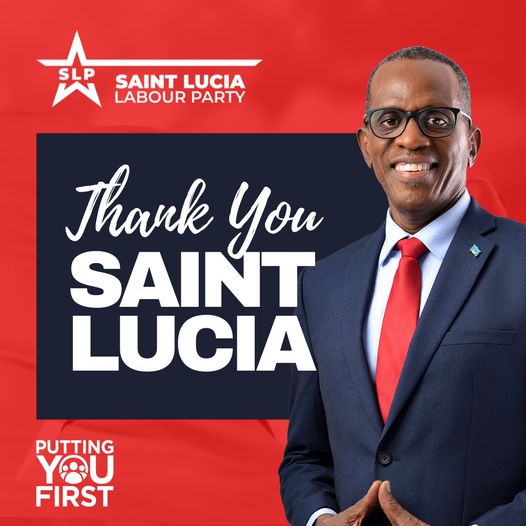
As hinted above, I’m not overly impressed with what the St. Lucia Labour Party is bringing or has promised to bring to the table. However, being pro government, as I was with Allen Chastanet in 2016, I am quite prepared to give the new prime minister the benefit of the doubt. And, indeed, when one looks closer, beyond the noise, beyond the fanfare or lack thereof, and beyond the charisma or lack thereof, one may find promising signs. Months, even years before the elections, persons who knew Philip J. Pierre well were extolling his qualifications for the post of prime minister.
Economist, former St. Lucian diplomat, and SLP stalwart, Peter Lansiquot, said that by virtue of Philip J. Pierre’s training and experience as an economist, accountant, and an international business consultant, his varied ministerial portfolios (including minister of tourism, minister of commerce, and minister of infrastructure), his stints as acting prime minister, and his grass-roots orientation, he was the best-prepared opposition leader (and hence one of the best-prepared candidates for prime minister) in the history of St. Lucian politics. “For the first time in forty years,” said Peter Lansiquot, “the Saint Lucia Labour Party has a leader imbued comprehensively with the necessary professional qualifications, personal credentials, and grass-roots political grounding and orientation…” These comments bring to mind Hillary Clinton who arguably was the most qualified presidential candidate in the history of the US. Unfortunately, and at great cost to the US and the world, instead of her, the American people opted for Donald Trump.
John Peters, an engineer and St. Lucian intellectual, seems to agree with Lansiquot. He noted that in terms of years of parliamentary experience leading to the prime ministership, prime minister Pierre comes closest to John Compton, the father of the nation. If so, Pierre is surely in good company.
And according to Andrew Antoine, a cultural and social activist who claims to have known Philip J. Pierre for over 30 years, Pierre’s character, personality, and professional acumen uniquely qualify him for the position of prime minister. He said that the political leader was “a humble, honest, caring, principled, and very intelligent man… his persona, his demonstrated firm grasp of local, regional and international issues, and empathy with our people, will guide us through the difficult times of rebuilding St. Lucia after this disastrous Allen Chastanet-led UWP administration is voted from office.”
It would appear that coming from under a prime minister who was perceived as culturally barely a St. Lucian, who many suspected of talking a good game but lacking the intellect to match, who presided over what many regarded as the most corrupt government in St. Lucia’s history, who seemed to have gone out of his way to disparage the country’s laws and statutory institutions, who, confirming suspicions of being a spendthrift, was seemingly profligate with the country’s resources, who appeared to favor rich foreigners and friends over the citizenry, and who seemingly ran roughshod over the country, Philip J. Pierre, whose intellect, capabilities, and integrity have never been questioned, who as a grassroots man of the people is as well integrated in St. Lucian society as any other, who according to many has given a good account of himself in all of the several ministerial portfolios he has held, who many regard as one of the few incorruptible St. Lucian politicians, whose calm, low-key, non-attention-grabbing personality suggest a leader who puts substance before style, consensus and teamwork before ego, service before self-aggrandization, may turn out to be exactly what the doctor ordered.
There are some people who have the gift of always being able to say and do the right thing. After the contentious, dismissive, and alienating Chastanet government, Philip J Pierre’s swearing-in speech was probably exactly what the citizenry needed to hear to start the healing process and the coming together of the nation, and suggests he may have the knack of saying and doing the right things. For in this brief speech, the prime minister spelt out what would be the modus operandi of his administration, which in effect would counter the misguided direction in which Allen Chastanet had taken the country.
“I promise to be prime minister not for some of the people, but for all the people … we now have to manage an inclusive, equitable, and just society. I believe that our island can be one where dignity of the human person is preserved and respected; where our citizens are treated equally and given the opportunity to grow and achieve their full potential; where the poor and less fortunate and vulnerable members of our society are protected and assisted by the government to achieve a decent quality of life; where human rights are guaranteed by the government for all citizens; where there is equal economic opportunity for all, and the resources of the state are used to benefit the majority of the people, since there can be no economy without people; where all citizens can discuss freely the economic, political and social affairs of the country free from political victimization and retribution; where our patrimony is respected, and our environment preserved … As your servant leader, I shall serve all the citizens of the country regardless of their social class or station in life … I won’t do it alone; I will seek the counsel of the wise.”
In 2016 voters said they have had enough of Kenny Anthony and so voted his party out in favor of Chastanet and his UWP. Now, in 2021, having tried and found Chastanet wanting, voters soundly rejected his party and its dismissive and non-people-centered policies and instead switched to Philip J. Pierre and back to SLP in no uncertain terms. At this juncture voters have said: yes, we care about our sovereignty and patrimony; yes, government must be about the lifting of all boats, not just that of the well to do, or any other subset that suits the fancy of the prime minister; yes, government must give a helping hand to some of our fellow citizens who have fallen by the wayside; but we want employment, and we want the corruption to stop. And according to the likes of Peter Lansiquot and Andrew Antoine, Phillip J. Pierre is uniquely positioned and qualified to meet the needs and aspirations of the people.
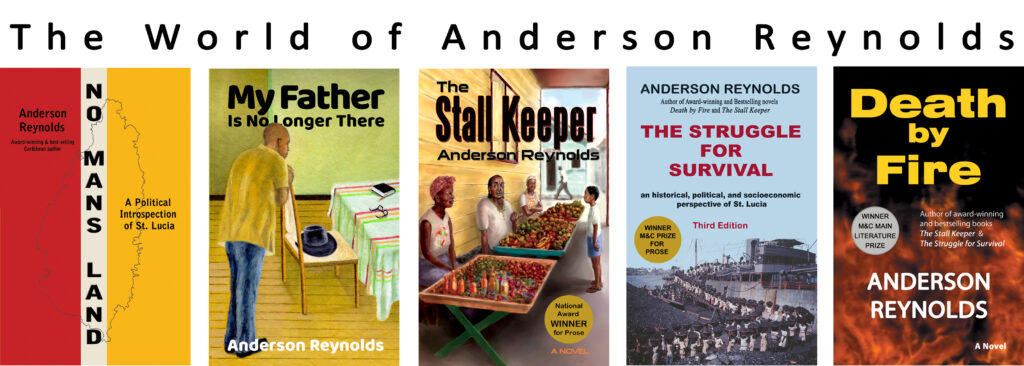
Unlike Kenny Anthony, he is an economist who has operated his own business so he would understand job creation and the growing of the economy better than most. Unlike Chastanet, who was born with a silver spoon, and who, according to his own father is wasteful, a spendthrift, Philip J. Pierre rose from among the people and came out of the tradition of Sir George F.L. Charles, the father of St. Lucia’s labor movement, so he would understand and appreciate the poor and downtrodden, and would be well versed in the prudent management of the nation’s resources. With this election, it was as if the people reasoned that after the waste and gluttony of the Guy Joseph and Allen Chastanet government, after the public outcry against corruption, after the seeming disenfranchisement of St. Lucians, who else better to run the country than Philip J. Pierre?
There are several parallels between Phillip J. Pierre and Joe Biden. Both men seemed low-key, uncharismatic, patient, tolerant, team players and served long years under others in the number two position, seemingly biding their time, never rocking the boat; for the most part they didn’t seem to be anyone’s first choice, and eventually became the leading candidate, not through sheer brilliance or force of personality, but because their choice was the dialectic conclusion; it was circumstances—COVID-19 in the case of Biden, Stephenson King’s defection in the case of Pierre—that served as the clincher in their victory rather than their leadership appeal. In other words, it was more a vote against Chastanet than a vote for Pierre, and it was more a vote against Trump than a vote for Biden.
Like in the case of Philip J. Pierre, I was never particularly impressed with Joe Biden. Yet, like the stone the builder refused, President Biden has done all the right things, and has not made one wrong move, and on the looks of things, he may well turn out to be one of the best presidents in US history.
With a landslide electoral victory of 13 to 4 the new prime minister, Philip J. Pierre, is given a mandate that enables him to boldly implement his vision and aspirations for the country, to set the country on a path of social and economic progress, to address the flaws in the country’s constitution that hamper its progress, to set the country on a path to full employment. Like Chastanet in 2016, it is a golden opportunity for the prime minister to make history and set his prime ministership apart from all those who came before him and maybe all those to come after him.
So, the question is, will the new prime minister grab this opportunity with both hands and become the hero who slays the dragon of corruption, unemployment, rising crime, and exploitative and opportunistic (so called) developers, and bring home the elixir of long term social and economic progress? Or will the new prime minister squander this opportunity, as did Chastanet before him? Only time will tell.
Following is a video biography of the author, Dr. Anderson Reynolds, whose books and newspaper and magazine articles have
established him as one of St. Lucia’s most prominent and prolific
writers and a foremost authority on its socioeconomic and political history.
Related Links
Stephenson’s Kings interview
Read more about NO MAN’S LAND
Watch the Virtual International Book Launch of NO MAN’S LAND
Watch NO MAN’S LAND book trailer
Buy Dr. Reynolds Books Online
Buy Dr. Reynolds Books in St. Lucia
Watch The Great Political Debate
![]()



